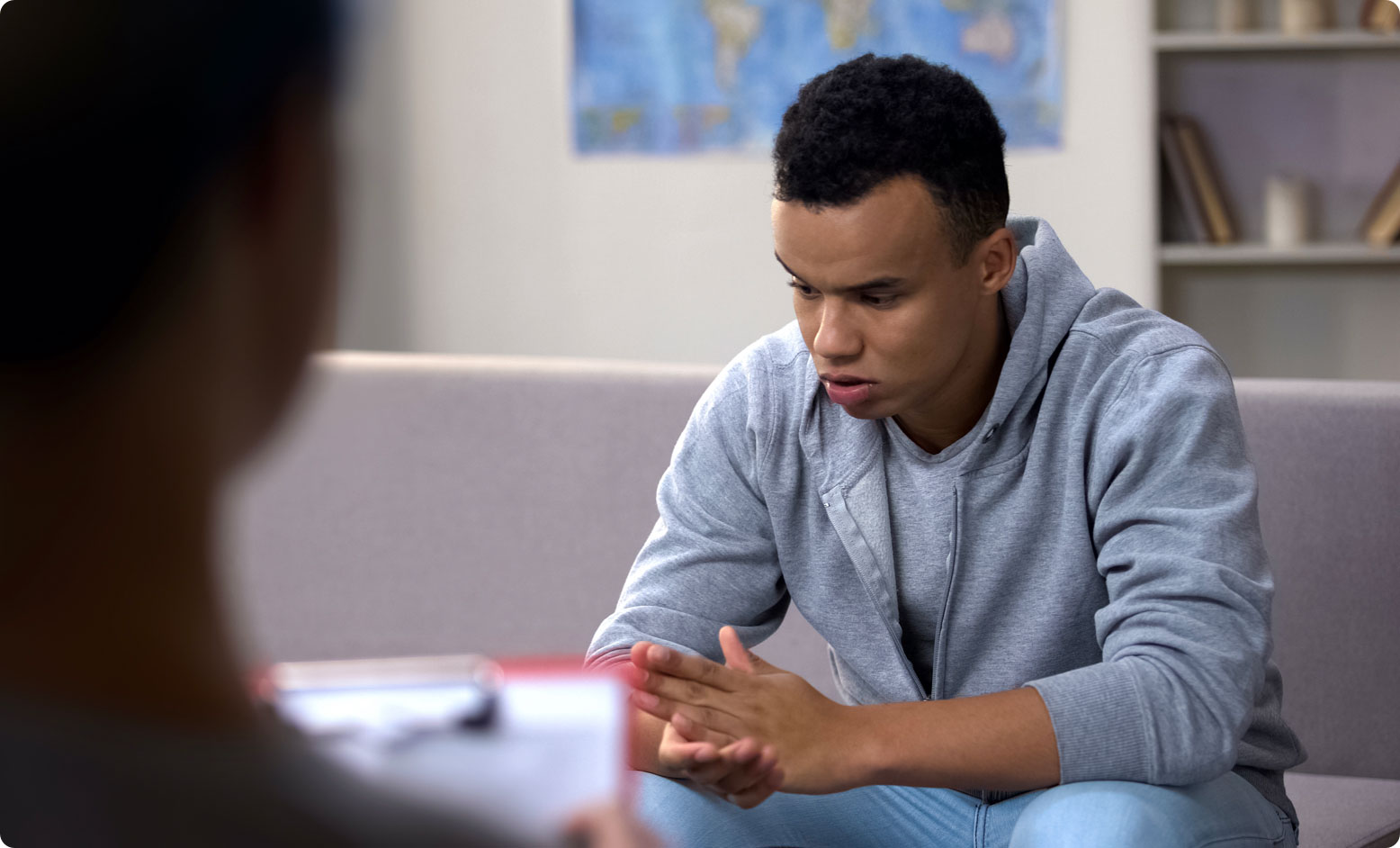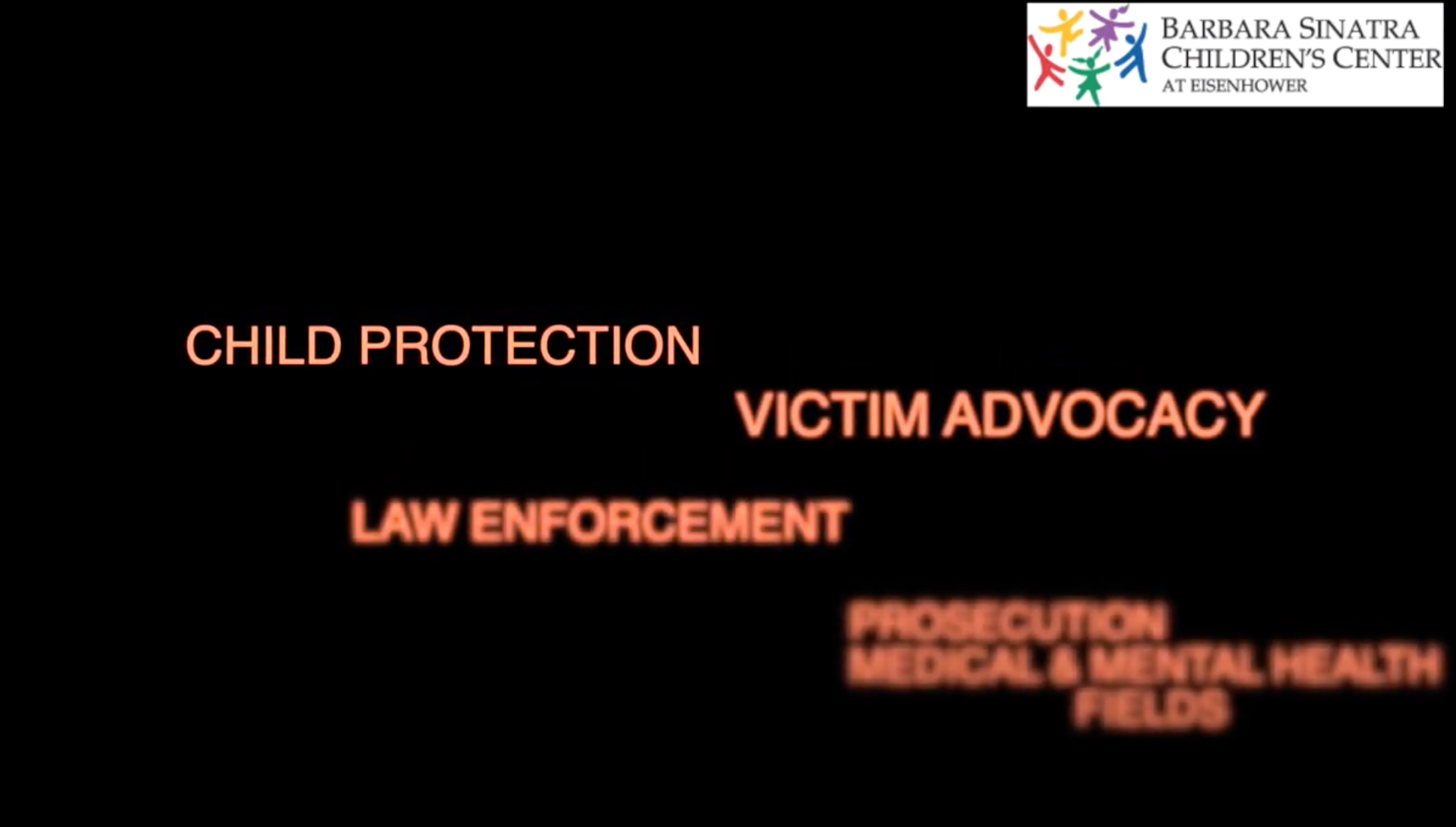Services
-
Psychological/Psycho-social Assessment
Initial counseling sessions with child and parent(s)/guardian(s) to document client and family psychological, medical and psycho-social history. During assessment, a thorough intake is conducted to assess client functioning, identify symptomatology, assess mental status, identify client needs, and establish a personalized treatment plan.
-
Psychiatric Evaluation
Provided by on-site contract licensed psychiatrist, with appropriate monitoring.
-
Individual Psychotherapy for Victims of Abuse
One-on-one therapy with a clinician and pre-adolescent or adolescent client, or an adult associated with the client. Weekly sessions are supportive, educational, insight-oriented and behavior modifying. Individual counseling including TF-CBT may involve the use of art, clay, sand tray and other therapy tools as well as assessing non-verbal communication. These methods assist interaction between therapist and child, and are particularly advantageous with children who have not yet developed adequate verbal skills to express feelings, and situations, or whose trauma is so severe that verbalizing is not an option.
-
Group Therapy
As needed, some children participate in group therapy as an adjunct to their individual therapy sessions. Weekly therapy in group settings are for six to eighteen clients of similar age, last approximately 60 minutes, and are integral parts of individually designed therapy programs.
-
Expressive Art Group
Our brand new art studio provides a creative medium to help children develop self-awareness, explore emotions, address unresolved emotional conflicts, improve social skills, and increase self-esteem. Art therapy primarily aims to help individuals experiencing emotional and psychological challenges achieve personal well-being and improved levels of function. The art studio provides a platform for self-expression, group interaction, individual and family therapy.
-
MindSpace Group
A group led by a certified instructor to teach the physiology of relaxation, meditation and mindfulness. Practice ways in which relaxation skills can help with trauma reactions. An integrative mind-body based approach that helps clients to manage their thoughts and feelings and mental health. Practice exercises that help to relax the body and free the mind of worry. The overall goal is learning healthy coping skills.
-
Tennis Life Skills Group
The Center has partnered with the USTA/National Tennis & Learning Network, a nationwide group of community tennis programs seeking to develop the character of young people through tennis education. The program promotes positive teamwork, fosters communication/listening skills and character development. This group instills in children the values of leadership, academic excellence, and conflict resolution, all through developing their tennis skills and sportsmanship.
-
Teen Self-Esteem Group
Weekly group sessions to develop confidence and self-esteem to positively impact the child’s inner and outer self. Professionals volunteer to teach grooming, hygiene, dress, nutrition, music, art, communication and other confidence building appropriate to this age group.
-
Teen Support Group
Provides an opportunity for clients with sexual abuse history to share personal experience and feelings. This group allows clients to learn coping skills and how to express their feelings and emotions with others. In addition, allowing clients to develop self-awareness by listening to others with similar issues.
-
AMAC (Adults Molested As Children)
Adult women molested as children share life struggles and support for positive interaction and growth. Open to the public.
-
-
Family Therapy
Therapy in which the client and family members meet to help modify behaviors and provide support. Abusive family members are not a part of any Children’s Center counseling protocol.
-
Counseling Non-Abuse Childhood Disorders (on a space available basis)
Counseling is beneficial to parents of a child with the following, and other disorders and traumas. Family and primary victim counseling improves the mental health and well-being of the child.
-
Anger Management
-
Aggression
-
Bullying and Cyberbullying
-
Issues of Grief/Loss/Bereavement
-
Blended Family Issues
-
Attention Deficit Disorder
-
Low Self-Esteem
-
Childhood Depression and Anxiety
-
Academic Underachievement
-
Post-Traumatic Stress Disorder
-
Divorce Reaction
-
Sleep Disturbances
-







